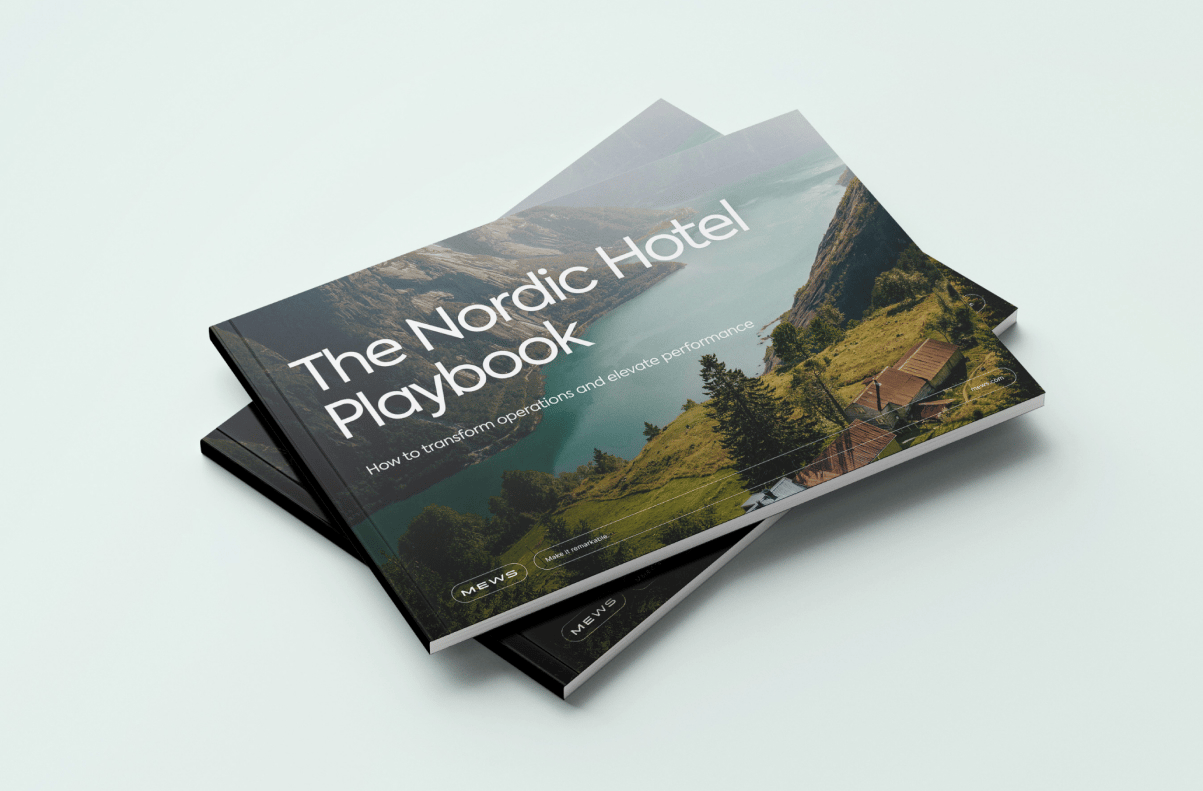Table of contents
Last week I checked into one of Europe’s most forward-thinking luxury boutique hotel brands. Being a hotelier myself, I am always on the lookout to see how the hotel’s website lines up with the experience in the property. As I arrived at the hotel, I was really pleased to see that the look and feel of the hotel was completely aligned, all the way up until the first interaction with the hotel employees:
We arrived at the hotel at 14h00, and the official check-in time was 15h00, so our room was not ready (which seems to be a very normal thing in our industry). She asked me how my journey was, whether I would like a wake-up call or a newspaper, and recited the obligatory breakfast times and elevator locations. I am sure this was exactly according to their brand standards and she seemed very proud that she had not missed a beat. Next, she asked for payment of the reservation, to which I responded by handing her my credit card. Once paid, I asked for an invoice, but she mentioned that due to system limitations, it was impossible to print the bill until the room was physically checked-in to their system… and since the room was not ready yet, there would be no bill. She would ask a colleague to give me the bill once I would be handed my key.
Fast-forward, 3 hours later, I came to pick up my key and they had kindly already placed my luggage in the room (a really nice touch), but, unfortunately, I was not provided with the bill.
The next morning at 04h45 AM, as I left the hotel, I passed by the reception and asked whether the receptionist would be able to provide me with the bill. He informed me that a system audit was running, so he could not give me the invoice… he seemed a little lost as to what to do at this point. So, I offered him to e-mail me the bill later, which he promised he would do.
4 hours later I received an e-mail from the hotel with my bill, but when I opened the attachment, unfortunately it was a bill preview, missing the bill number and tax summary, which is important for our accountant when I submit my expenses. So, I wrote back and asked for the official bill. When I did not receive an answer within 24 hours, I prompted them again, and then finally I received the bill, after interactions with 4 different employees.
Had this happened in 1995, I would have totally been ok with it, as this was the status quo of systems at the time. However, as we enter 2017, when 95% of guests travel with smart phones, completely accustomed to super-fast and efficient service, this is no longer acceptable. Considering the hotel was running on the most expensive and widely adopted hotel system (Oracle’s Opera PMS), they should have been able to offer a customised and modern guest experience in line with their brand promise?
So what should a guest experience in 2017 look like in our opinion?
Rooms should be ready when guests arrive
Hotels should offer an online check-in during which important questions such as the exact arrival time of guests is asked, as this will allow the hotel to prepare for arrivals correctly.
Housekeepers should be equipped with smart devices, where they can instantly see the status of the room, and whether the guest is in his/her room at that time. This prevents a lot of unnecessary bother and knocking on doors.
This also allows them to focus on those rooms that have upcoming arrivals and prioritize those to be cleaned and inspected first. Being able to inspect rooms directly in the PMS from a smart device ensures the quickest turn around on rooms as possible.
Of course it may still happen that guests have to wait for their room, but you should be able to reduce this significantly, saving up to 50% on the time spent.
Stop asking guests for their credit card upon check-in/out
If you have ever booked via AirBnB, once your credit card is stored on your profile you are never again asked to present the physical card to the host upon check-in and check-out.
Why does this not work in hotels? The credit card is provided at the time of booking, and if the system is modern enough, it can transact it online, without ever needing to ask a guest again. The card is stored, so if the guest has any incidental charges or wants to make their next booking at your hotel again (or any hotel in your chain), the stored card can simply be used again.
Bills should be sent to guests automatically and via e-mail
Hotel systems have all the guest data stored and ready at its disposal, and as a guest card is charged, it should simply send the bill by e-mail without even the need for a guest to prompt it.
A normal cloud solution should not have audits, so even if guests check out at 4h45, the system should be up and able to offer employees the ability to use it at any time of day. Night audits were created during the 80s, when systems had limited computing and storage power, but in 2017 this should no longer a concern. If you ever start searching for a new PMS, let your first question be “does your system have a night audit?”- it’s the quickest filter to write off most of the least forward-thinking solutions out there.
Should you really be offering wake up calls and newspapers to guests in 2017?
Back in the 90s, offering a wake-up call or a newspaper was considered a personalized service, and was highly appreciated. Today both these services run on a smartphone, and all I am interested in, as I walk through the doors of a hotel, is how fast is the wifi, is it free and how do I get access it.
Hotels who want to offer a personalized but also modern experience should rather consider new ways to connect with guests. Personally, I care about great coffee and a well-lit co-working space in the lobby with good (international) plug access. Find ways to connect to your guests via their smart phones, to inform them when their room is ready, or whether they would like to book a table at the restaurant. There are so many great start-ups in this space (Oaky, QuickText, etc.) who can help you drive these experiences.
Getting ready for 2017
If you do anything at the beginning of 2017, I suggest to take 2 hours with your hotel team, grab your hotel standards… and review whether they align with your current customer base. If you are targeting an older market of customers who want an experience that they’ve known for 30 years, it may be acceptable to offer newspapers and wake-up calls; for those that are not of that generation, it may not.
And so, for those who realize their brand standards are not 100% aligned with their target market, drop us a note, always happy to share ideas of great start ups that can push your experiences to the next level.

Author
Matthijs Welle
After years in the trenches of hospitality, Matt co-founded Mews in 2012. Since then he's been our fearless CEO, leading the company and the industry forward.
Hospitality hot takes straight to your inbox
Sign up to our monthly newsletter for industry insights, product news, partner updates and more.

The Nordic Hotel Playbook
Download now

.jpg?width=624&height=555&name=GLAMPING%20(1).jpg)


.webp)